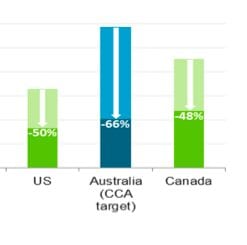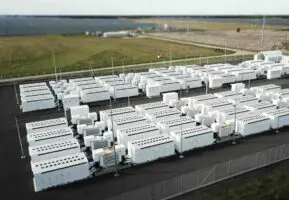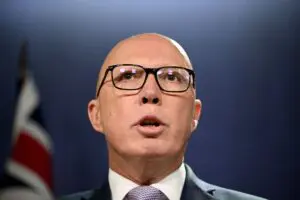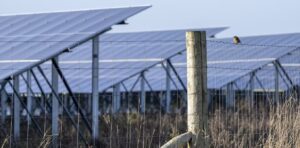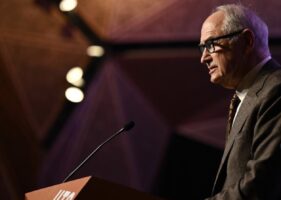The Climate Change Authority has not budged from its call for Australia to rapidly increase its emission reduction targets, calling on policy makers to stop paying lip service to climate science and embrace the “unstoppable” transition to a low-carbon economy.
CCA chairman Bernie Fraser, a former head of the Reserve Bank of Australia, said the independent authority stood by its interim findings that Australia should aim for a 30 per cent cut in emissions from 2000 levels by 2025, and should possibly double that target by 2030. Its recommendations for 2030 are for a cut of between 45 and 60 per cent on 2000 levels.
In a direct backhand to current government policy, Fraser said he wondered why it was that policy makers said they accepted the science and the need to meet 2C targets, but did not set policies accordingly.
“Most policy people say they believe and accept the science of climate change and support the 2C target”, Fraser told a media briefing on Thursday.
“One has to wonder how strong this belief is. If they really supported the 2C goal, it would be pretty easy to get the type of targets we are talking about for Australia …
“You would really be wanting to take effective action,” Fraser added. “If you believe the science and support the goal, you would be wanting to do at least as much as other countries.” He said even the CCA recommendations would not represents Australia’s fair share of a real 2C target, but it would get the country a lot closer.
The Coalition government did not give a formal response to the CCA’s recommendations – it has tried to dismantle the authority and bring such advice “in house”. But the Abbott government has described the CCA’s targets as “onerous” and requiring more effort, in emissions per capita, than other countries.
But Fraser dismissed this view, saying that Australia was already so far behind other comparable countries, that even if it reached these targets, it would still only beat Canada in measures of per capita emissions.
This graph below shows the CCA recommendations and how they compare with other targets. The lighter shade shows the effort between 2005 and 2025, and the darker shade where the countries will sit at that point.
 The Australian government is due to release its post 2020 emissions reduction targets this month. It has come under increasing pressure after China confirmed its decision to peak emissions before 2030, and to cut its carbon intensity by 65 per cent, and by new renewable energy deals struck by Mexico and the US, and increased emissions targets from South Korea.
The Australian government is due to release its post 2020 emissions reduction targets this month. It has come under increasing pressure after China confirmed its decision to peak emissions before 2030, and to cut its carbon intensity by 65 per cent, and by new renewable energy deals struck by Mexico and the US, and increased emissions targets from South Korea.
However, the Abbott government has sought to play down the efforts of other countries, with foreign minister Julie Bishop dismissing the China pledge as “obvious”, because the Chinese economy would also stop growing by 2030.
Fraser also had stinging criticism about the move to reduce targets to suit certain sectoral interests, as had happened in renewable energy, and lamented the government’s attitude towards renewables.
He said recent policy decisions had clearly discouraged new investment in renewable energy.
“There is a bit of a bias against renewable energy at the present time,” Fraser said.
That was evident in the scaling back of RET and in the remarks of Prime Minister and the Treasurer about wind energy. Tony Abbott has said wind farms are “ugly” and potentially harmful to health. Joe Hockey has described wind farms as “objectionable”.
“That is not helpful.,” Fraser said.
“There is a transformation going on to a low-carbon world,” Fraser said, describing it earlier as “unstoppable. “One should have open mind and recognise the role of renewable – not to be holding back new investments in that process. “
The CCA report says Australia has a lot of catching up to do, and should not model its targets on what “laggards” such as Canada recommend.
Fraser says the CCA targets are manageable because the emissions intensity of the Australian economy approximately halved in the 22 years to 2012, in response to structural changes, new technologies, fuel switching and improvements in energy efficiency.
These drivers of change can be expected to continue over the decade ahead, and to accommodate both larger absolute reductions in Australia’s greenhouse gas emissions, and further substantial reductions in the emissions intensity of the Australian economy.
“While the recommended targets for Australia are challenging, they are no more so than the targets many other developed countries have been pursuing in recent years, and are committing to in the post-2020 period.”

